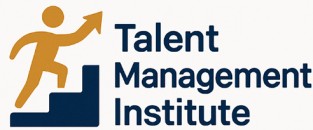The Role of Job Titles in Talent Management
The Importance of Job Titles in Talent Strategy
In today’s dynamic business landscape, crafting effective job titles holds paramount importance in the arena of talent management. Job titles serve as a pivotal touchpoint for candidates seeking alignment with their professional aspirations and companies aiming to define roles with clarity and intention. They help encapsulate the responsibilities associated with a position, offering candidates and stakeholders a concise overview of the role itself. Creating a robust job title is not just about filling a vacancy; it’s about strategically positioning the organization in the eyes of potential talent. A well-constructed title can attract high-quality candidates, streamline recruitment processes, and uphold business identity standards. In contrast, poorly formed titles may lead to misunderstandings, a disconnect between job descriptions and expectations, and ultimately, candidate disengagement. For businesses looking to enhance their recruitment efficiency, leveraging a job title generator can be a valuable tool. These generators use algorithms to produce creative, engaging, and professional titles that align with business goals and industry standards. This ensures job descriptions resonate with the target audience while maintaining consistency across the organization. By effectively using a job title generator, companies could see improvements in attracting and retaining top talent. Further challenges in creating impactful job titles include understanding industry nuances and predicting future job market trends. As roles evolve with technological advancements and changing work environments, so too must job titles. It’s crucial for organizations to adapt and innovate within their talent management strategies to remain competitive. For additional insights into integrating job titles within broader recruitment initiatives, explore these effective strategies for hiring.Understanding Job Title Generators
Exploring Job Title Generators
In the evolving landscape of talent management, job title generators have emerged as a valuable tool for businesses. These generators serve as a creative catalyst, helping organizations craft titles that are not only catchy but also aligned with the role's responsibilities and the company's ethos. By leveraging a job title generator, businesses can streamline the process of title creation, ensuring consistency and professionalism across the board.
Job title generators work by analyzing a database of existing titles and descriptions, often incorporating keywords relevant to the industry or specific business needs. This approach allows for the generation of high-quality titles that resonate with potential candidates, enhancing the recruitment process. Additionally, these tools can provide inspiration for crafting unique titles that stand out in a crowded job market.
Beyond job titles, there are various other generators available that can aid in different aspects of content creation. For instance, a slogan generator can help create catchy taglines for marketing campaigns, while a bio generator can assist in crafting professional bios for LinkedIn profiles. Each of these tools serves a specific purpose, contributing to a cohesive and effective branding strategy.
While job title generators offer numerous benefits, it's important to use them as a guide rather than a definitive solution. Human input remains crucial in ensuring that the generated titles accurately reflect the role and align with the company's values. By integrating these tools into a broader recruitment strategy, businesses can optimize their talent management efforts and unlock potential in new markets. For further insights into strategies for success in talent management, explore unlocking talent potential in New York.
Key Elements of a Strong Job Title
Essential Components of a Compelling Job Title
Creating a robust job title is not merely a matter of slapping together words; it requires thoughtful consideration to effectively reflect both the role and the culture of the organization. A successful job title acts as both an invitation and a handshake, setting the first impression for potential applicants. To craft a strong job title, consider these critical elements:- Clarity and Specificity: The title should clearly convey the primary responsibilities and level within the organization. This prevents confusion and ensures that applicants understand the position's significance. Avoid complex jargon that might be off-putting. Generators like a job title generator can help brainstorm clear and straightforward options.
- Alignment with Business Culture: Tailor the title to reflect the company’s culture. A tech startup might prefer fun, informal titles, while a law firm might opt for more traditional ones. Business generators can come in handy here to align titles with brand ethos.
- Incorporation of Industry Keywords: Use relevant industry keywords to make the role more discoverable. This optimization aids in attracting top talent through search engines and job boards by using tools like a hashtag generator or SEO-friendly title generator.
- Indicative of Career Path: Reflect potential growth and career development within the title. Job descriptions should match this tone of progress, and integrating a job description generator can help achieve consistency.
Challenges in Creating Job Titles
Overcoming the Obstacles in Naming Roles
Creating effective job titles can be more challenging than it seems. Job titles need to balance between being descriptive and engaging, while also communicating the professional responsibilities of the role. Issues often arise due to a variety of factors, including organizational culture, industry norms, and linguistic nuances. One common hurdle is ensuring that job titles are aligned with the internal structure and expectations of the business while still appealing to potential candidates externally. For example, a role known internally as "Account Guru" might sound creative and appealing but could lack the clarity and gravitas needed for professional platforms like LinkedIn. This discrepancy necessitates careful crafting of job titles that resonate both internally and with job seekers. Another challenge lies in standardization across industries. While some businesses might opt for innovative or casual title options, others might stick strictly to traditional and widely recognized titles. This inconsistency can sometimes result in confusion for both recruiters and applicants. Moreover, ensuring inclusivity and avoiding biases in job titles is crucial. Titles need to be free from gendered or culturally specific assumptions that might unintentionally alienate potential candidates. Words carrying unnecessary connotations can mislead or discourage diverse groups from applying. Using a title generator that offers options for neutral and inclusive job descriptions is one way to address this challenge effectively. Integrating automation tools such as job title generators can indeed support the process, yet it’s vital to use these tools discerningly to produce high-quality, professional results. While such tools can provide diverse and creative titles, the human touch is essential for refining the generated content to fit the unique nuances and ethos of your business. Ultimately, addressing these challenges requires a blend of creative thinking, organizational knowledge, and the strategic use of digital tools to craft titles that attract talent while accurately reflecting the role and aligning with business values.Integrating Job Title Generators into Recruitment Strategy
Leveraging Technology in Recruitment
Incorporating job title generators into recruitment strategies has become a pivotal move for businesses navigating the complexities of talent acquisition. By using cutting-edge tools like these, organizations unlock new possibilities to enhance their hiring processes. Firstly, adopting a title generator helps create more accurate and attractive job descriptions. These tools analyze patterns in language and industry trends, enabling recruiters to generate content that resonates with potential candidates. From slogan generators to bio generators, the variety of tools available assists in crafting engaging and high-quality job titles that capture the essence of the role. Moreover, integrating such generators facilitates the generation of creative and precise job titles, saving time and improving efficiency. A business generator can align job titles with the company's ethos, creating a professional image that appeals to candidates on platforms like LinkedIn. Incorporating these tools also helps ensure consistency and uniformity across job descriptions, maintaining a coherent brand voice. Optimized job titles not only attract qualified candidates but also enhance the searchability of job postings, making it easier for potential hires to find career opportunities aligned with their skills and interests. While the benefits are clear, it's critical to balance the use of such technologies with human oversight. Although title generators are a burgeoning trend, recruiters should use them as facilitators, ensuring that the human element of understanding organizational needs and candidate desires remains in the forefront. By strategically integrating these innovative tools, businesses can streamline their recruitment initiatives, ensuring that they not only attract high-quality talent but also build a strong employer brand that stands the test of time.Future Trends in Job Titles and Talent Management
Emerging Trends in Job Titles: Shaping the Future of Talent Management
As the landscape of employment continues to evolve, the development and utilization of job titles are witnessing dynamic changes. With the advent of new technologies and methodologies, understanding these shifts is critical for businesses aiming to stay ahead in talent management. The integration of job title generators, previously discussed, is set to influence the future of job titles significantly. These tools offer a more automated approach to creating titles that are not only engaging but also aligned with the evolving nature of work roles. The ability to generate job titles that capture the essence of novel roles, using a blend of professional and creative language, is becoming increasingly important. Several trends are emerging:- Personalization and Customization: Job titles are moving towards a more personalized approach. Businesses now have the tools to generate custom titles that reflect the unique responsibilities and creative contributions of each role. Description generators aid in crafting messages that resonate with potential candidates on platforms like LinkedIn.
- Integration with Branding: Job titles are also playing a key role in branding strategies. A well-crafted title is not just a job descriptor but a component of a business's overall narrative, acting as a professional slogan that can attract talent closely aligned with the company's ethos.
- Embracing Digital Transformation: Tools such as bio and username generators, coupled with hashtag creation, are essential as roles increasingly demand a digital presence. The goal is to produce high-quality, search-optimized content that enhances engagement.
- Focus on Clarity and Creativity: While clarity in titles remains vital, the push for creative titles continues. The challenge lies in finding a balance through tools like creative job title generators that produce both unique and descriptive titles.
- Data-Driven Decision Making: The future offers the potential for more data-driven approaches in title creation. As insights from employee profiles and market trends become more accessible, harnessing the power of these data points can lead to more informed and impactful role descriptions.












-large-teaser.webp)
